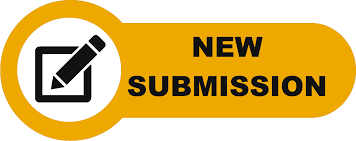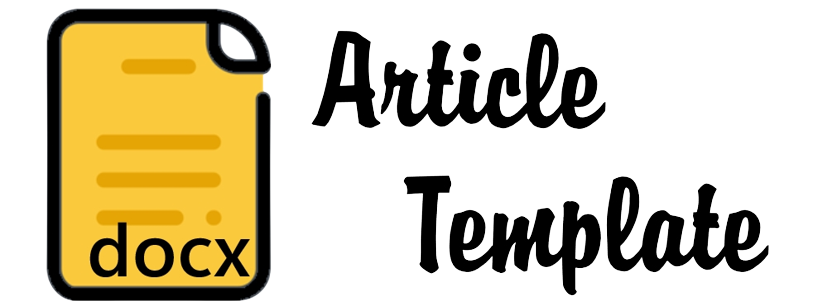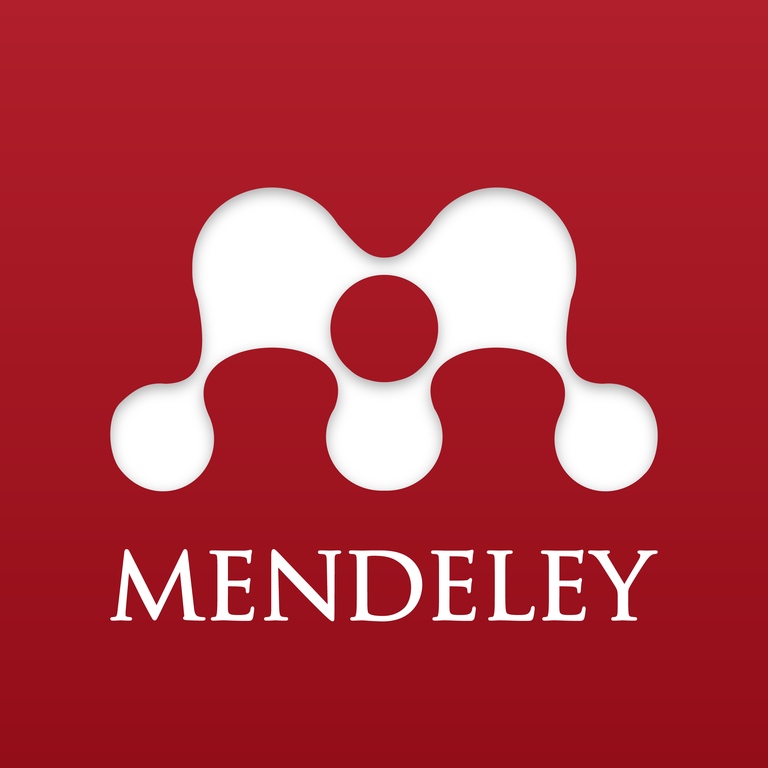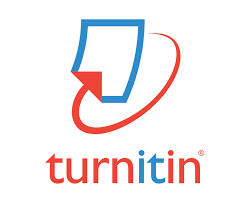Publication Ethics & Malpractice statement
Nursing Genius Journal follows guidelines from the Committee on Publication Ethics (COPE) and the International Committee for Medical Journal Editors (ICMJE) in facing all aspects of publication ethics and, in particular, how to handle cases of research and publication misconduct.
All studies must be conducted to a high ethical standard and must adhere to local regulations and standards for gaining scrutiny and approval. The work described in your article must have been carried out in accordance with The Code of Ethics of the World Medical Association (Declaration of Helsinki) for experiments involving humans; EC Directive 86/609/EEC for animal experiments.
NGJ has implemented the COPE guidelines to ensure that ethical standards are met by editors, authors, and reviewers at a high level of quality. The importance of publication ethics cannot be overstated, as it is essential to enhancing the quality of research on a global scale.
Authors, Editors, and Reviewers' Responsibilities
For Authors
Reporting Standards
Authors of reports of original research should present an accurate account of the work performed as well as an objective discussion of its significance. Underlying data should be represented accurately in the paper. A paper should contain sufficient detail and references to permit others to replicate the work. Fraudulent or knowingly inaccurate statements constitute unethical behaviour and are unacceptable.
Data Access and Retention
Authors are asked to provide the raw data in connection with a paper for editorial review, and should be prepared to provide public access to such data (consistent with the ALPSP‑STM Statement on Data and Databases), if practicable, and should, in any event, be prepared to retain such data for a reasonable time after publication.
Originality and Plagiarism
The authors should ensure that they have written entirely original works, and if the authors have used the work and/or words of others that this has been appropriately cited or quoted.
Multiple, Redundant or Concurrent Publication
An author should not, in general, publish manuscripts describing essentially the same research in more than one journal or primary publication. Submitting the same manuscript to more than one journal concurrently constitutes unethical publishing behaviour and is unacceptable.
Acknowledgement of Sources
Proper acknowledgement of the work of others must always be given. Authors should cite publications that have been influential in determining the nature of the reported work.
Authorship of the Paper
Authorship should be limited to those who have made a significant contribution to the conception, design, execution, or interpretation of the reported study. All those who have made significant contributions should be listed as co-authors. Where there are others who have participated in certain substantive aspects of the research project, they should be acknowledged or listed as contributors. The corresponding author should ensure that all appropriate co-authors and no inappropriate co-authors are included on the paper and that all co-authors have seen and approved the final version of the paper and have agreed to its submission for publication.
Disclosure and Conflicts of Interest
All authors should disclose in their manuscript any financial or another substantive conflict of interest that might be construed to influence the results or interpretation of their manuscript. All sources of financial support for the project should be disclosed.
Fundamental Errors in Published Works
When an author discovers a significant error or inaccuracy in his/her own published work, it is the author’s obligation to promptly notify the journal editor to retract or correct the paper.
Hazards and Human or Animal Subjects
If the work involves chemicals, procedures or equipment that have any unusual hazards inherent in their use, the author must clearly identify these in the manuscript.
For Editors
Fair Play
An editor at any time evaluate manuscripts for their intellectual content without regard to race, gender, sexual orientation, religious belief, ethnic origin, citizenship, or political philosophy of the authors.
Confidentiality
The editor and any editorial staff must not disclose any information about a submitted manuscript to anyone other than the corresponding author, reviewers, potential reviewers, and editor, as appropriate.
Disclosure and Conflicts of Interest
Unpublished materials disclosed in a submitted manuscript must not be used in an editor's own research without the express written consent of the author.
Publication Decisions
The editorial board is responsible for deciding which of the articles submitted to the journal should be published. The validation of the work in question and its importance to researchers and readers must always drive such decisions. The editors may be guided by the policies of the journal's editorial board and constrained by such legal requirements as shall then be in force regarding libel, copyright infringement and plagiarism. The editors may confer with other editors or reviewers in making this decision.
Review of Manuscripts
The editor must ensure that each manuscript is initially evaluated by the editor for originality. The editor should organise and use peer review fairly and wisely. Editors should explain their peer review processes in the information for authors and also indicate which parts of the journal are peer-reviewed. The editor should use appropriate peer reviewers for papers that are considered for publication by selecting people with sufficient expertise and avoiding those with conflicts of interest.
For Reviewers
Contribution to Editorial Decisions
Peer review assists the editor in making editorial decisions and through the editorial communications with the author may also assist the author in improving the paper.
Promptness
Any selected referee who feels unqualified to review the research reported in a manuscript or knows that its prompt review will be impossible should notify the editor and excuse himself from the review process.
Standards of Objectivity
Reviews should be conducted objectively. Personal criticism of the author is inappropriate. Referees should express their views clearly with supporting arguments.
Confidentiality
Any manuscripts received for review must be treated as confidential documents. They must not be shown to or discussed with others except as authorised by the editor.
Disclosure and Conflict of Interest
Privileged information or ideas obtained through peer review must be kept confidential and not used for personal advantage. Reviewers should not consider manuscripts in which they have conflicts of interest resulting from competitive, collaborative, or other relationships or connections with any of the authors, companies, or institutions connected to the papers.
Acknowledgement of Sources
Reviewers should identify relevant published work that has not been cited by the authors. Any statement that an observation, derivation, or argument had been previously reported should be accompanied by the relevant citation. A reviewer should also call to the editor's attention any substantial similarity or overlap between the manuscript under consideration and any other published paper of which they have personal knowledge.
Authorship & Contributorship
Authorship
The International Committee of Medical Journal Editors Recommendations for the Conduct, Reporting, Editing, and Publication of Scholarly Work in Medical Journals (ICMJE Recommendations 2018) recommend that authorship be based on the following four criteria:
-
Substantial contributions to the conception or design of the work; or the acquisition, analysis, or interpretation of data for the work; AND
-
Drafting the work or revising it critically for important intellectual content; AND
-
Final approval of the version to be published; AND
-
Agreement to be accountable for all aspects of the work in ensuring that questions related to the accuracy or integrity of any part of the work are appropriately investigated and resolved.
In addition to being accountable for the parts of the work he or she has done, an author should be able to identify which co-authors are responsible for specific other parts of the work. In addition, authors should have confidence in the integrity of the contributions of their co-authors.
We include only one corresponding author per article. Any further contribution details (e.g., equal contribution) must be included in the contributors or acknowledgment sections at the end of the article.
NGJ requires that all those designated as authors should meet all four ICMJE criteria for authorship, and all who meet the four criteria should be identified as authors. We recognise only natural persons over 18 years of age as authors. These authorship criteria are intended to reserve the status of authorship for those who deserve credit and can take responsibility for the work. The criteria are not intended for use as a means to disqualify colleagues from authorship who otherwise meet authorship criteria by denying them the opportunity to meet the criterion. Therefore, all individuals who meet the first criterion should have the opportunity to participate in the review, drafting, and final approval of the manuscript.
The individuals who conduct the work are responsible for identifying who meets these criteria and ideally should do so when planning the work, making modifications as appropriate as the work progresses. The corresponding author takes primary responsibility for communication with the journal during the manuscript submission, peer review, and publication process, and typically ensures that all the journal’s administrative requirements, such as providing details of authorship, ethics committee approval, clinical trial registration documentation, and gathering conflict of interest forms and statements, are properly completed, although these duties may be delegated to one or more co-authors.
When a large multi-author group has conducted the work, the group ideally should decide who will be an author before the work is started and confirm who is an author before submitting the manuscript for publication. All members of the group named as authors should meet all four criteria for authorship, including approval of the final manuscript, and they should be able to take public responsibility for the work and should have full confidence in the accuracy and integrity of the work of other group authors. They will also be expected as individuals to complete conflict-of-interest disclosure forms.
At NGJ we want authors to assure us that all authors included on a paper fulfil the criteria of authorship. In addition we want assurance that there is no one else who fulfils the criteria but has not been included as an author. When we encounter disagreements among authors we follow guidance from the Committee on Publication Ethics (COPE).
Contributorship
NGJ lists contributors (some of whom may not be included as authors) at the end of the paper, giving details of who did what in planning, conducting, and reporting the work. This is a good place to include contributions by patients or members of the public who have assisted as research volunteers, giving their names and specific roles. We encourage authors to fully acknowledge the contribution of patients and the public to their research where appropriate.
One or more of these contributors are listed as guarantors of the paper. The guarantor accepts full responsibility for the work and/or the conduct of the study, had access to the data, and controlled the decision to publish.
See Maintaining the integrity of the scientific record.
Researchers must determine among themselves the precise nature of each person's contribution, and we encourage open discussion among all participants. See Authorship is dying; long live contributorship.
Researchers must determine among themselves the precise nature of each person's contribution, and we encourage open discussion among all participants.
Alteration to Authorship or Contributorship
Any change in authors and/or contributors after initial submission must be approved by all authors. This applies to additions, deletions, change of order of authors, or contributions being attributed differently. Any alterations must be explained to the editor. The editor may contact any of the authors and/or contributors to ascertain whether they have agreed to the alteration.
Group Authorship
If there is a very large number of authors we may ask for confirmation that everyone listed met the ICMJE criteria for authorship. If they did, we may then require that the authors form a group whose name will appear in the article byline.
Process for Identification of and Dealing with Allegations of Research Misconduct
NGJ’s editors are committed to taking reasonable steps to identify and prevent the publication of papers where research misconduct has occurred, including plagiarism, citation manipulation, and data falsification/fabrication. In no case shall NGJ or its editors encourage such misconduct, or knowingly allow it to take place. If NGJ’s editors become aware of any allegation of research misconduct relating to a published article, they will follow COPE’s guidelines in handling the allegation.
Appeals and Complaints
Peer Review Appeals and Complaints from Authors
NGJ follows COPE guidelines on appeals to editorial decisions and complaints about the peer‑review process.
Editor Decisions
-
Genuine Appeals
You may appeal an editorial decision by submitting strong evidence or new data/information in response to the editor’s and reviewers’ comments. -
Opinion‑Led Articles
Appeals for opinion pieces are less likely to succeed; ensure evidence and full references are provided. -
Process
-
Write an appeal letter detailing why you disagree and addressing reviewer/editor comments.
-
Submit to info.ngj@nursinggeniuscare.co.id
-
Editors may involve associate editors or request further review.
-
One appeal per article; decisions are final.
-
Comments on Editorial Management
To comment on editorial management, email info.ngj@nursinggeniuscare.co.id. NGJ reserves the right to decline or suspend an appeal if legal proceedings on the same subject are underway.
Data Sharing Policy
Data Sharing
Authors are encouraged to deposit their research data as supplementary files or in a data repository and cite/link it in their article. If data cannot be shared, a statement explaining why must be provided.
Policy Highlights:
-
Data supporting the article must be made openly available upon publication, or shared via controlled access if necessary.
-
Data from clinical trials must be available upon reasonable request, with a sharing plan included in trial registration.
Data Availability Statement
On submission, authors choose from standardized statements, for example:
-
“The datasets generated during the current study are available in [Repository Name], [URL].”
-
“Data are available from the corresponding author on reasonable request.”
-
“All data are included in this article and its supplementary files.”
-
“Data are not publicly available due to [reason] but can be requested from the corresponding author.”
These statements appear under “Data Availability Statement” in the published article.
Ethical Oversight
If the research involves chemicals, humans, animals, or unusual hazards, authors must clearly identify these and provide ethical clearance documentation if required. Confidential data must be justified regarding secure handling.
Intellectual Property (Copyright Policy)
Journal policy on intellectual property and copyright is declared here.
Post‑Publication Discussions and Corrections
NGJ welcomes discussions and corrections from readers. To propose a discussion or correction, contact the Editor‑in‑Chief via info.ngj@nursinggeniuscare.co.id Accepted items will be published as Letters to the Editor in the next issue, and authors may reply as a “Reply to a Letter to the Editor.”













